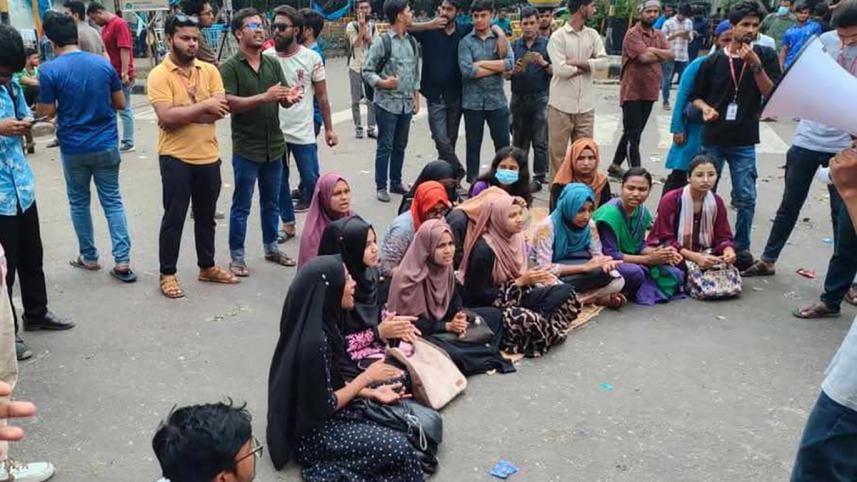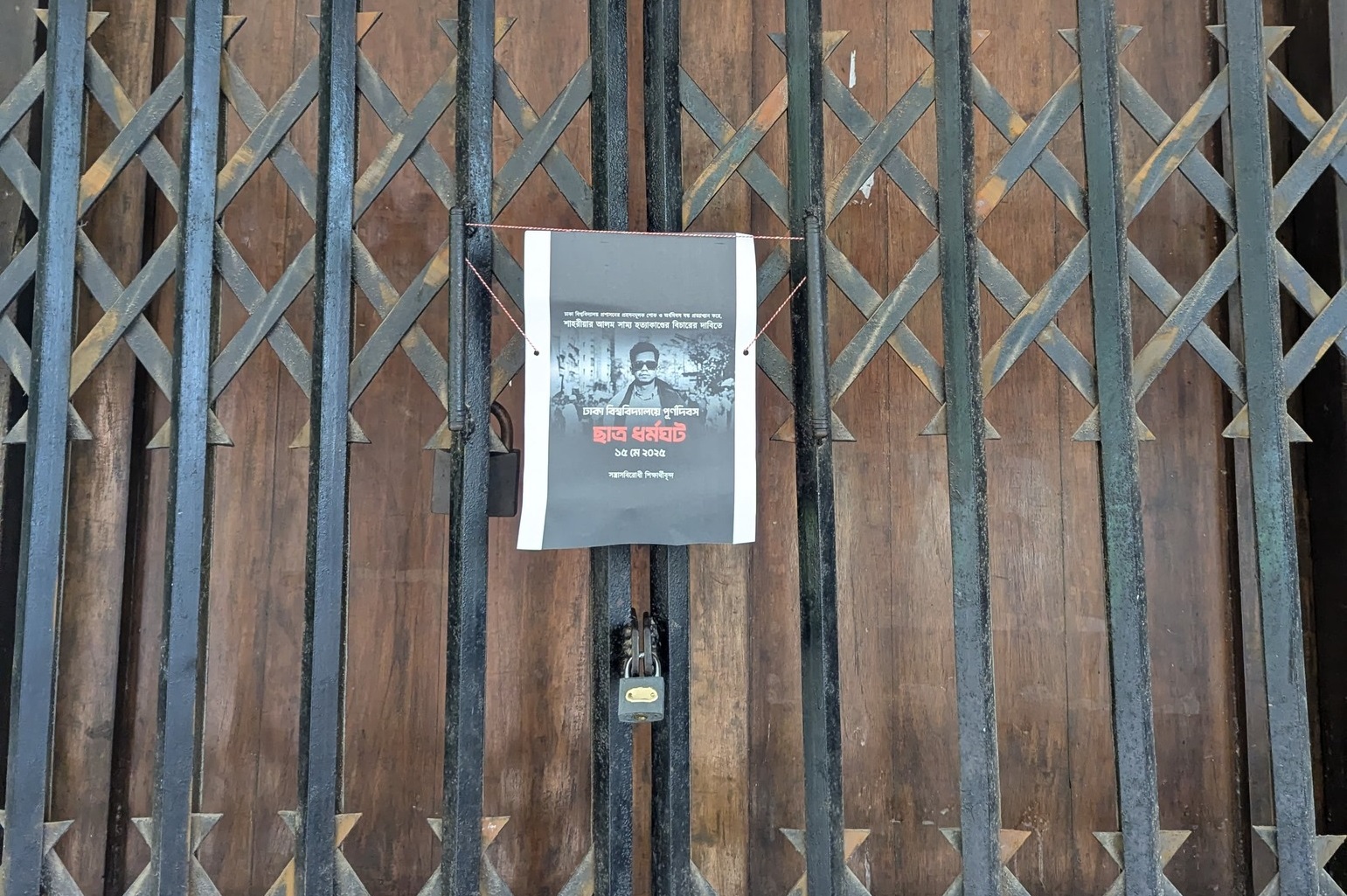Academic stalemate at 4 public univs

Four public universities have been experiencing severe disruption to their academic activities due to ongoing demonstrations by students and teachers, putting the future of nearly 70,000 students in jeopardy.
The protests brought classes and examinations to a standstill, sparking serious concerns over prolonged session delays and disruption of the academic calendar.
The four universities are Jagannath University (JnU), Dhaka University, Khulna University of Engineering and Technology (Kuet), and Barishal University (BU).
Students and faculty members fear that it will not be possible to complete the syllabi in time due to the prolonged disruption, especially at Kuet and BU, which have remained closed for nearly three months and one month, respectively.
"It's been nearly three months since our campus shut down. This is hurting our education and our future—we just want to return to class," said a second-year Kuet student.
Mohammad Zahid Hossain, a BU student, added, "Finishing this semester's syllabus now feels nearly impossible."
Several teachers echoed the concern, saying the unrest made it impossible to run full academic sessions, inevitably harming students' progress.
Prof Toufiq Alam, who was recently appointed as BU vice-chancellor after his predecessor was removed amid student protests, acknowledged the situation. "No problem is insoluble. I will work together with students, faculty, and staff to resolve these challenges," he said.
Prof SMA Faiz, chairman of the University Grants Commission, said that the government has taken necessary steps to solve problems at KUET and BU.
"We are leaving no stone unturned in solving the problems. Each university has its own unique issues. We have taken students' demands very seriously," he told The Daily Star.
He said that students are finally getting the opportunity to raise their voices after many years. "They were held captive like slaves, but now they have found an open space where they can express themselves and share their experiences."
He, however, said learning loss is a real issue for students.
"I hope everyone takes this matter seriously. Whatever can be done immediately from the commission's side, we will strive to do," he added.
There are 36,676 students currently studying at DU; 17,527 at JnU; 7,941 at KUET; and 7,346 at BU, according to UGC sources.
Most of the public universities saw disruptions in their academic and administrative activities after the July uprising. Vice-chancellors, pro-VCs and other officials of more than 45 universities resigned or were forced to step down from their positions.
While the government had planned to reopen universities on August 18, leading institutions resumed classes gradually between September 22 and October 20. Normalcy did not return to many campuses at that time.
Prof Anu Muhammad, a former teacher at Jahangirnagar University, said many of the new administrations formed after the August 5 political changeover were poorly organised and lacked proper planning, as the government largely failed to manage the situation effectively.
"In some cases, the government seemed nervous or unsure when to be firm or lenient while dealing with the crisis," he added.
Anu Muhammad said the government's recent "support" for some protesters may have led Jagannath University students to believe they could march to Chief Adviser Prof Muhammad Yunus's residence.
He called the students' demand for housing valid but criticised the police response to the demonstration as unnecessary, saying it worsened the crisis and even affected teachers.
In the cases of other universities, a proper follow-up was required after decisions were made, he said.
PROTESTS
At Dhaka University, no classes and examinations took place yesterday as a group of students protested against the killing of Shahriar Alam Shammo, a DU student and Chhatra Dal leader.
The students locked the gates of several faculties, the registrar's building, and the Central Library.
The students and teachers of JnU continued their sit-in yesterday, boycotting classes and exams for the second consecutive day at Dhaka's Kakrail intersection.
Their demands include a housing allowance for 70 percent of students from the 2025-26 fiscal year until proper residential facilities are ensured.
At Kuet, the stalemate began on February 18 when students were injured in an assault allegedly carried out by outsiders. The government later relieved the VC of his duties after a hunger strike by the student protesters.
Academic activities were scheduled to resume on May 4, but the teachers declared a boycott of academic duties, insisting that those responsible for assaulting teachers during student protests must be brought to justice first.
At BU, student protests began on April 15 when the university authorities removed a member from the university syndicate.
Prof Shuchita Sharmin, who had been facing backlash from a faction of students and teachers since the appointment of the registrar, was removed as VC on May 13 amid the protests against alleged irregularities and administrative mismanagement.
[Our correspondents in Khulna and Barishal contributed to this report]




 For all latest news, follow The Daily Star's Google News channel.
For all latest news, follow The Daily Star's Google News channel. 
Comments